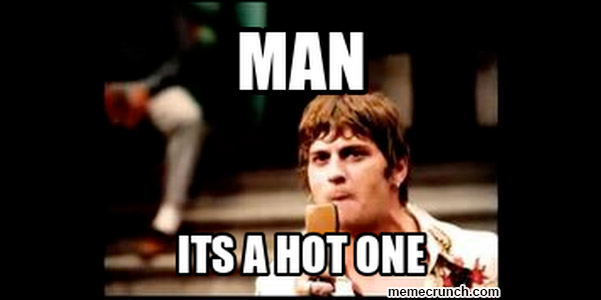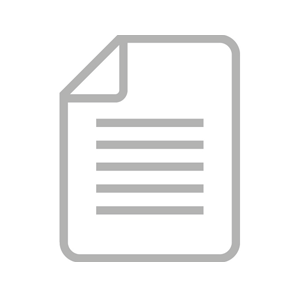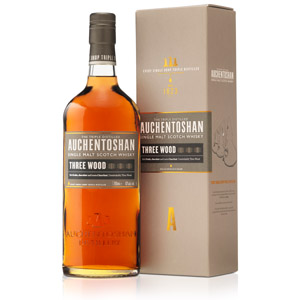
Let’s talk a little more about “smooth”. Why? Because dragging a single topic out into two separate posts is a time-honored tradition among bloggers, and because I said so, that’s why.
Let’s get something out of the way, first. If you say “smooth” in front of me when talking about a whisky, I am not going to say something snooty to you. However, flawed human that I am, it might cause me to internally re-evaluate your whisky knowledge into the “entry level” category, and I might then proceed to condescend like an elitist jerk during the remainder of our conversation. I’m sorry, it’s not your fault, but I can’t help it. I say this because I want you to know that I’m not alone, and the quickest way to betray your whisky noobiness to, say, a whisky tasting club or acquaintances at a whisky tasting event is to use the S-word. In fact, I would go so far as to say that the word is part of unwritten Snob Law as an official Mark of Ignorance™ that will get every hipster, millennial, and whisky blogger in the room rolling their eyes at you.
Ironically despite (or maybe because of) this elitist coding of the word amongst aficionados, whisky industry marketing and PR people continue to use the damn word on every piece of prose they can get their hands on. Even with the inherent pretension of such works (if you think my tasting notes are flowery, read the back of a single malt bottle some time), writers of label and brochure copy can’t seem to stop themselves from inserting the word. It may be a calculated appeal to the uninitiated masses, or more likely just a habit – like a tic. Either way, at best it amounts to an information-less word (a “weasel word” as my 7th-grade English teacher would call it, like “interesting”), at worst a misleading promise of a low alcohol level or blandness. What I find funny is that the word appears in higher concentrations among two specific types of spirits: the bottomest of the bottom shelf, and the tippyest of the top shelf. I get the grasping at straws that must occur on labels for stuff that comes in plastic bottles with handles, but the word appears twice on the Johnnie Walker Blue Label website. Diageo might think they can get away with it by using the word “velvety” in front of it. They can’t.
Oddly enough, the antonym “rough” is acceptable in polite company, and implies that the spirit lacks polish, is especially hot for its proof, contains especially youthful-tasting flavors, or perhaps is eclectic and unpredictable in the “rough and ready” sense. “Hot” is another approved term, and specifically refers to alcohol “tickle” in the nose and “burn” on the tongue. A whisky can be “hot” either because it is bottled at a high proof, or because it has the characteristics of a high-proof whisky without the correspondingly high ABV. Just remember that if you sip and swallow quickly or – God forbid – shoot it, and then proclaim that the whisky is “rough” or “hot”, you might as well have just said the S-word, and you can show yourself out.
The even-more-absurd descriptor, “drinkable” (which I’m quite guilty of using) won’t earn you an eyebrow raise and a lesson on flavor. This, even though the word literally only means that it is possible to put the liquid in your mouth and swallow it.

Warning: conjecture follows. What I think people are really trying to say when they use the word “smooth” in earnest whisky-related conversation is “polished”. A whisky without many unusual flavors, hard edges, off-putting notes, and which tastes like it was artfully and professionally put together could be called “polished”, and is very likely to have a soft texture and a smooth, unobjectionable presence on the tongue. Not all good whisky is polished – some of my favorites, like Talisker 10, are rough-and-ready (Ooh, a motif! Look at me, being all literary…) – but a well-polished whisky is often a positive experience. Just remember that an overly-polished whisky is a possibility, and while also “smooth”, such a whisky can be downright boring. (See the aforementioned Blue Label).
Finally, a story. I was a fresh-faced 21 year-old with a shiny new driver’s license and I went wine tasting with some friends. In an effort to show my compatriots how cultured I was, I remarked upon the wine’s “nose”. Just slipped it into the conversation. Real smooth-like. The obnoxious d-bag behind the tasting bar (who could not possibly have been more than 25) promptly told me that “wine people don’t use the word ‘nose’ anymore.” Yes, he actually said those words, and in that order. Whether this is true or not (I’m not a “wine person”, so I don’t know), he outed me in front of my friends as an imposter – a pig with lipstick on – and himself as a self-righteous tool. I tell you this for two reasons. One, to hopefully prevent you from meeting a similar public shaming re: “smooth”, and two, as a cautionary tale for the rest of you, to keep your snobbery to yourself… even when someone uses an unapproved descriptor in public.





I enjoy this discussion. I shudder to think how many times I’ve used the S word, even on my own little whisky blog. I’m willing to defend its usage to a certain degree, though. Many of the ten or so people who regularly read my blog (I’m probably being generous) are “n00bs” (did I do that right?). Talking about mouthfeel as “silky”, “waxy” or “oily” is confusing to many of them. Or so they’ve told me. I try not to use the S word in conversations with fellow enthusiasts, but if I do, I’m not going to worry about it. So long as they don’t shame me for my use of the word, I won’t shame them for drinking (and fawning over) brands whose whiskies are overpriced and unremarkable (*cough* Macallan)
Well well…this is outright pathetic if you ask me. (But you’re not, I know that.)
Also: arrogant.
What difference does it make what words people use to describe their whisk(e)ys? They choose the words they WANT to, and have the right to do so. It also has nothing to do with if they are a “beginner” of not. If they know what they mean with “smooth”, that’s fine. If you, the arrogant one, don’t understand what they mean, you can ASK. You don’t make the rules as it comes to whisk(e)y. Not even if you are an experienced whisk(e)y drinker or think you know something. People can perfectly make rules themselves. This post is nonsens.
I’m just not always convinced that the average person who uses “smooth” with any regularity does know what they mean by it beyond a rather vague quality endorsement of the product in question.
Smooth might well be used in place of polished by some, but polished is a better descriptor which doesn’t also carry the almost automatic positive associations of “smooth”. As a term without any real understood meaning within whisky, the first thing anyone HAS to do is to ask “what do you mean by smooth?” Again, that can lead to interesting discussion, but it could be better facilitated by initially choosing a better descriptor; smooth, within the context of whisky, has essentially been made meaningless by overuse and careless use. In fact, one of the reasons that the industry probably uses it so frequently is that it’s a term that’s all things to all people; what does smooth mean to Johnnie Walker(?) – whatever it means to you, if you’ll buy a bottle.
I can use the term, but nobody has any idea what I mean when I do, and that’s true regardless of my completely unchallenged “right” to do so.
Hey Paul,
Do you get that the Noob’s purpose here is expose casual (maybe) drinkers to the snob’s way of thinking?
He’s not saying, “Here’s how you ignorant doofuses must speak to us.”
He’s saying, “Word to the wise: A lot of snobs out there will look down on if you use this word.”
Here here 👍
On a few occasions, when with friends who get my sense of humor and who at some point use the term “smooth” to describe the whiskey we’re drinking, I’ve said something like, “Yes. Smoooooth. Like water. I had some water yesterday that was so… smooth.” It’s a good opener, among friends, to discuss what we look for in whiskey. I find they typically just mean that it goes down with little to no burn. It may not be what I look for, but it seems like a perfectly legitimate descriptor (like oaky or oily). In fact, using it as a pejorative will give some people usable quantifiable data.
But man, I know of two times real live people called JW Blue “smooth.” It’s an almost obligatory cliche. Hell, if I ever try it, I will definitely call it smooth. The smoothest of the smooth. With a capital SMOO! 😉
Also, the “sip and swallow” is one of several techniques I use to taste whiskey (along with e.g. the KY chew or whatever Horst Luening is doing). Just straight down the line over the center taste buds. It’s a unique experience of the whiskey, just as other techniques tease out different characteristics of the spirit. But I guess with that, I’ll show myself out….
“Using it as a pejorative will give some people usable quantifiable data.”
Good point! I could definitely see some whisky fans calling something “smooth”—with a knowing wink and some implied air-quotes—to obviously damn something with faint praise.
Noob, I’m really digging these posts about “smooth.” This is some quality whisky chatter right here.
You said this: “Oddly enough, the antonym “rough” is acceptable in polite company.” Exactly! I think that’s our proof that snobs’ antipathy toward the word is silly. It’s OK to call something “rough,” but NOT OK to call something the opposite of rough? Get out of here!
I think it’s far more about the fact that there’s often a better idea of what is meant by “rough” – almost always in the sense of unpolished – than there is about “smooth”, because the former isn’t an overused/misused catch-all descriptor like the latter. Language is meant to communicate, and “smooth” has essentially become meaningless, in and of itself, within whisky.
A word’s validity is based on how often it’s used, or “overused”?
Yes, if it’s overused in multiple contexts in which the intended meaning is not clear, it becomes a meaningless term. What does “smooth” mean?
What does “rough” mean?
What does “characterful” mean?
What does “tasty” mean?
What does “light” mean?
What does “rich” mean?
What does “anemic” mean?
Are these the most precise words available? No. Do they still mean something? Yes.
Well, “rough” usually means “unpolished”, but unpolished is a better term, while “anemic” can usually be understood to mean lacking in power (usually as a result of lower ABV).
And, in fact, “characterful” and “tasty” are pretty meaningless terms, and “light” and “rich” don’t mean much either. Put them together with “smooth” and you’ve a created a ready lexicon for marketing people and others whose opinion I wouldn’t trust on whisky. If anything, “tasty” – the new catch word for whisky promoters – means even less than smooth, and none of it speaks to the point that “smooth” has become a meaningless term within whisky.
Noob, what do you mean that “[Maybe BECAUSE OF] this elitist coding of the word amongst aficionados, whisky industry marketing and PR people continue to use the damn word on every piece of prose they can get their hands on”?
[I edited that a little bit to clarify the part I’m asking about.]
Sorry I missed this comment earlier. What I was implying was the possibility that marketing people may have picked up on the elitist stigma around the word “smooth”, and appropriated it to appeal to a wider, less-experienced audience. On the other hand, whisky marketers have been using “smooth” for ages, so that’s probably thinking way too much into it.
I do try my best to keep my snobbery to myself. I think when a person enjoys certain things that certain people view as snobbish (whisky, golf, good food or beer etc;), and has been doing so for a long time, it can be very easy to say something snobby without meaning to. In fact sometimes you don’t realize you’ve said something snobbish until you see the look on the face of the person(s) you just said it to. We should all take a lesson from your wine story: there is always someone out there who will be all too happy to out-snob you if given the chance. Like most people who read this blog I have my own personal (possibly snobbish) problem with the word smooth. I cannot stand when people value “smoothness” over complexity. I just finished my second Springbank 10 of the night. I know you like it too so I’ll spare everyone my attempt at tasting notes. In my experience people who value “smoothness” will describe whiskies like Springbank as “harsh”. They will tell you how Islay whisky tastes “like medicine”. To value smoothness to me says “I don’t want to think about what I’m drinking I just want it to go down easy”. That’s my snobby two cents. Cheers all!
Springbank 10 is a great whisky. If I could find it more often, I would always have a bottle of it on hand.
I live in NYC. Springbank is one of my favorites. I can’t even get it here, and I can get almost anything whenever I want it.
I think part of the hullabaloo around “smooth” is an age-old battle of the prescriptive grammarians vs. descriptive grammarians, or perhaps another fight between whether it’s better to be an egalitarian or a connoisseur. I see both sides, but I generally side with ScotchNoob here. In my experience, “smooth” is the typically ONLY descriptor of a spirit when it’s used. It wouldn’t be unlike going to an art gallery and saying that the pictures you saw there were “pretty.” It doesn’t mean that the smooth-sayer is classless or will never have that eye-opening moment. It’s just that I typically conclude they’re not at that point yet. As a result, if they’re a friend of mine, I usually try to find something on the shelf that can help illustrate the difference between two whiskies (the presence of corn in bourbon compared to a single malt, let’s say) in the hopes that it will expand how they think and talk about the experience. If they want to, that is! (most do.)
Is there any truth to the statement that wine people don’t call it nosing? That seemed like a really peculiar piece of snobbery. I may have just marked myself as a wine noob….
Honestly, I don’t know. I’m not really in any wine “circles”. Maybe someone else knows?
Personally I thought this particular blog was smooth…er, polished.